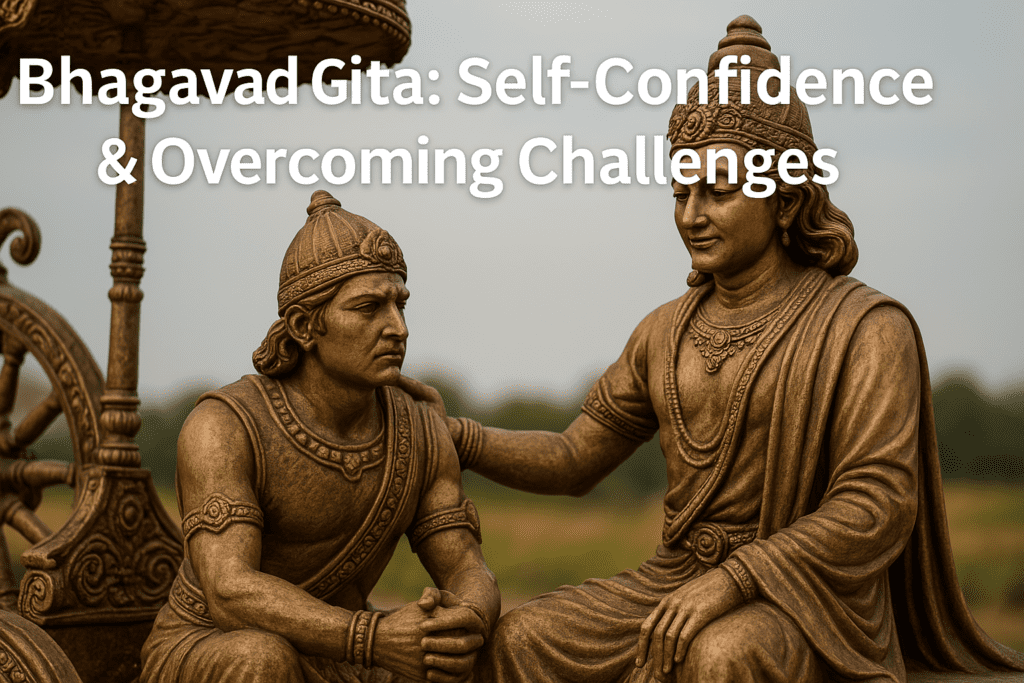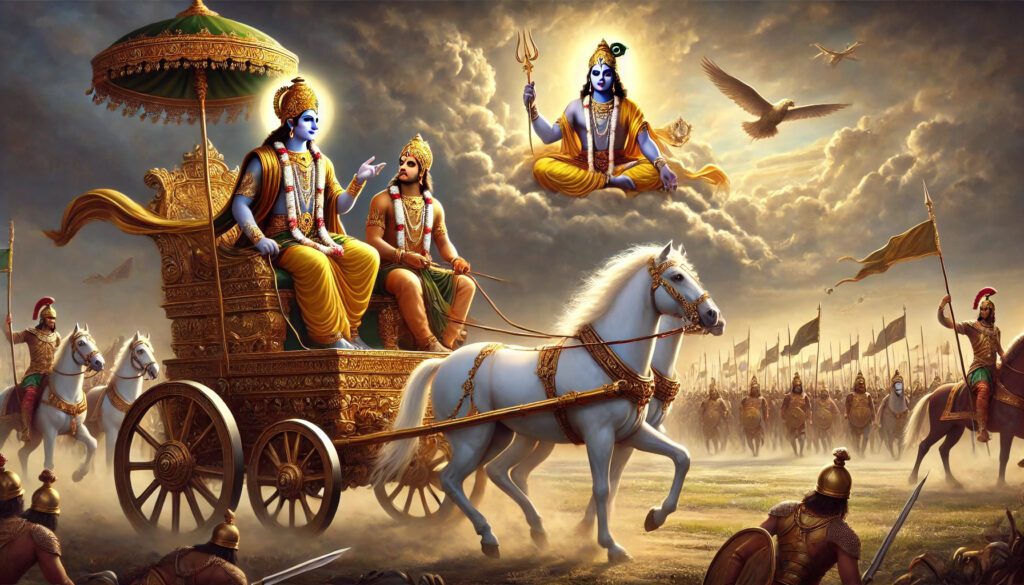The Bhagavad Gita is an eternal guide that provides profound wisdom on cultivating self-confidence and facing life’s challenges with courage and clarity. Through the conversation between Lord Krishna and Arjuna, it teaches invaluable lessons on overcoming doubt, fear, and hesitation.
- Recognizing Your Inner Strength
Krishna reminds Arjuna in Chapter 2, Verse 3 (Bhagavad Gita 2.3): “O son of Pritha, do not yield to this degrading impotence. It does not become you. Give up such petty weakness of heart and arise, O chastiser of the enemy!” This verse encourages individuals to awaken their inner strength and not succumb to self-doubt. True confidence stems from realizing our divine potential.
- The Power of Duty (Dharma)
In Chapter 3, Verse 35 (Bhagavad Gita 3.35), Krishna advises: “It is far better to perform one’s own duties imperfectly than to master the duties of another.” Self-confidence grows when we remain committed to our own responsibilities (dharma) rather than comparing ourselves to others. Accepting our unique path strengthens our ability to face challenges without fear.
- Detachment from Outcomes
One of the greatest sources of fear is the attachment to success or failure. Krishna’s teaching in Chapter 2, Verse 47 (Bhagavad Gita 2.47) is: “You have a right to perform your prescribed duties, but you are not entitled to the fruits of your actions.” This mindset fosters confidence, as it shifts focus from worrying about results to giving our best effort.
- Developing Mental Resilience
In Chapter 6, Verse 5 (Bhagavad Gita 6.5), Krishna instructs: “One must elevate oneself by one’s own mind and not degrade oneself. The mind is the friend of the conditioned soul, and his enemy as well.” The ability to control one’s mind is essential for self-confidence. A strong mind helps navigate adversity without being overwhelmed by negativity.
- Surrender and Trust in the Divine
In Chapter 18, Verse 66 (Bhagavad Gita 18.66), Krishna assures: “Abandon all varieties of dharma and surrender unto Me alone. I shall deliver you from all sinful reactions. Do not fear.” When one places trust in the Divine, fears dissolve, and one gains unwavering confidence to face any challenge life presents.
Conclusion
The Bhagavad Gita teaches that true self-confidence is not about arrogance or external validation but about realizing one’s divine nature, embracing one’s duty, and detaching from outcomes. By cultivating inner strength, mastering the mind, and surrendering to a higher purpose, we can navigate life’s challenges with grace and courage. Following Krishna’s wisdom, we transform fear into faith and hesitation into determination, walking the path of life with unwavering confidence.



